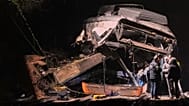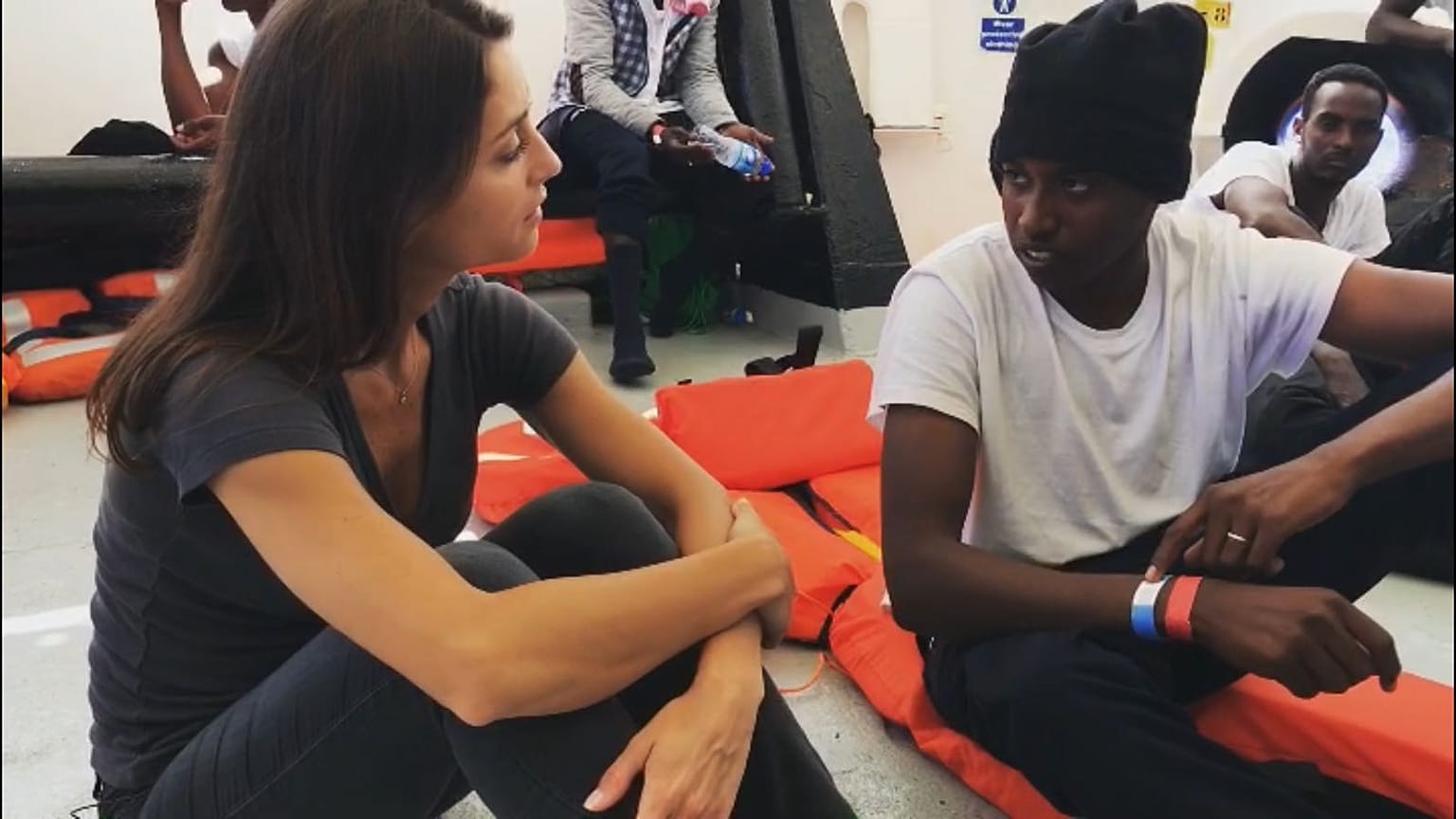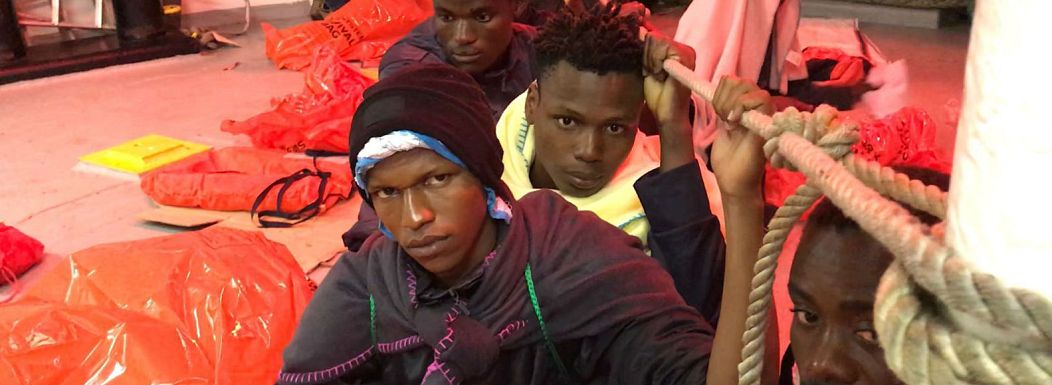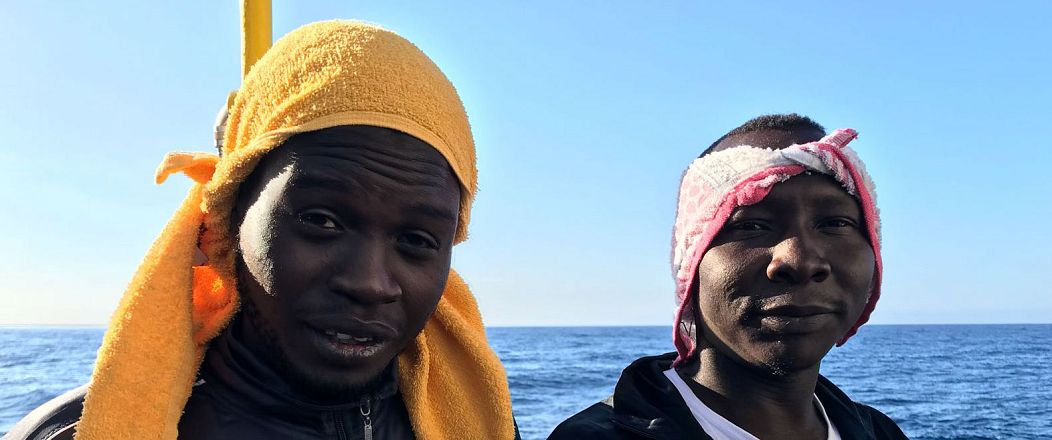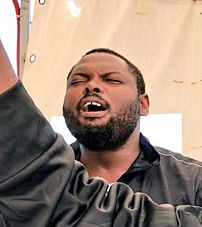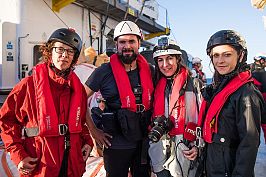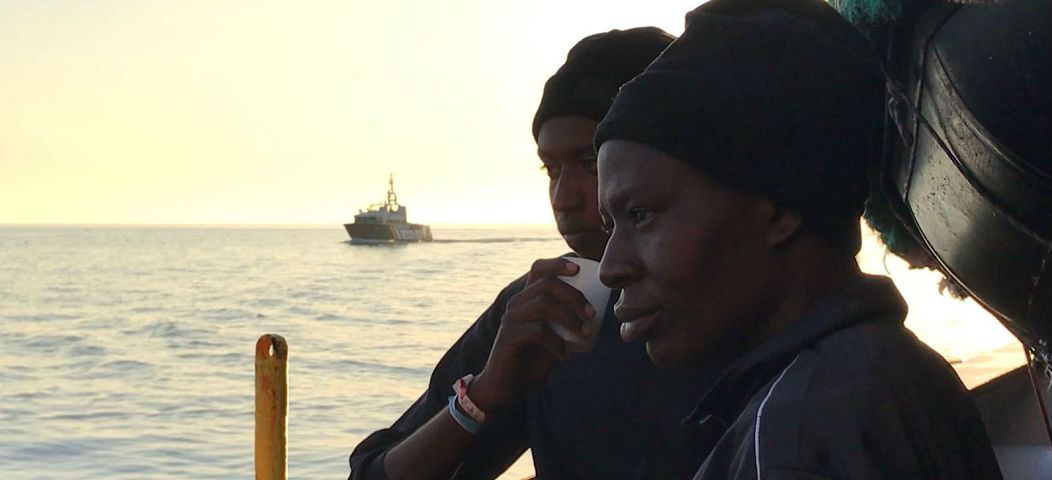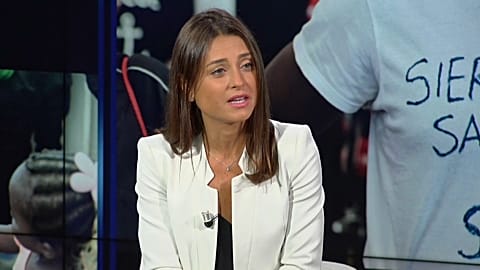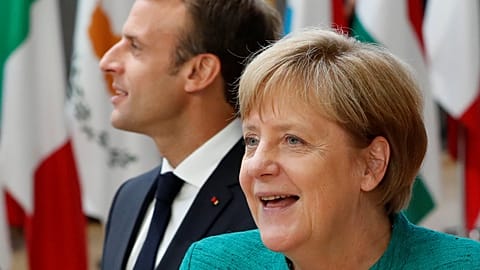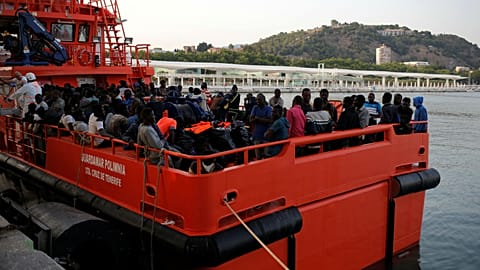Euroviews. Aboard the Aquarius: a week in the heart of the migrant crisis
Euronews' Anelise Borges relives the ten days she spent at the centre of literal and metaphorical storms on the Mediterranean migrant route.
It’s strange to be back on land after spending 10 days aboard the Aquarius.
It’s strange not to have the morning briefing at 08:15 with Doctors Without Borders and SOS Mediterranee or to hear the radio call “Aloys, Aloys for Lauren”, or to run up the narrow and steep steps towards the “bridge”.
It’s weird not seeing the sea.
But, above all, it’s weird not being with the people.
Yes, the people.
Not migrants, asylum seekers, refugees – or whatever some might be calling them.
I know it’s hard for many to see them in this way but let me break it to you: ultimately, they are just like you and me. Like you. And me.
All 630 of them.
People with dreams and aspirations.
People who want to go back to school, to find love, to raise a family. Universal yearnings… but virtually impossible to achieve if you live in war or extreme poverty.
People like Ali, a 16-year-old bright-eyed kid from Sierra Leone whose dream is to be a doctor.
Or Umram, a 22-year-old from Sudan who sings beautifully and crossed the Saharan desert and Libya before nearly drowning at sea.
Or Nduevlastin, 34-year-old pastor from Nigeria who says those aboard Aquarius were bringing solutions to Europe.
Europe already has many problems.
The bloc’s economy is no longer what it once was. Unemployment is high. Nationalism and extremisms of different sorts have found places in parliaments and governments.
The 630 people rescued from the Mediterranean Sea last weekend surely don’t want to become entangled in that debate or be fuel to any fire. But many people think they might.
A miracle
What the people I met aboard Aquarius experienced is nothing short of a miracle.
I saw 219 people survive against all odds. At least 40 of them fell in the water with no life jackets after their boat sank.
I still can’t find a better word to describe it.
And I am still trying to grasp the magnitude of the work done by SOS Mediterranee and MSF teams.
So far this year, nearly 700 people have died or gone missing during the treacherous crossing of the Mediterranean Sea*.
More than 5,000 perished last year.
It’s the world’s deadliest migration route.
Nearly every day, thousands of desperate men and women risk everything to escape violence and poverty.
Nearly every day, other men and women scour the sea in an attempt to help those looking for a second chance.
In 2014, the EU replaced Mare Nostrum – a search and rescue operation – with Operation Triton – whose mandate focuses on protecting European borders, rather than people’s lives.
As a response, Médecins Sans Frontières, Sea watch, Sea eye, Jugend Rettet, Proactiva-Open arms, Bootvlucth, Save the Children etc. launched their own dedicated search and rescue operations.
These groups are credited with saving thousands from the sea.
But several EU member-states believe humanitarian vessels serve as a “pull factor” for migrants and actually lead to more people attempting dangerous sea crossings.
Since Italy closed its ports to Aquarius, the missions’ future is uncertain.
There’s no clear indication on how they will operate from now on. Or even if they will be able to go back to the search zone off the coast of Libya at all.
A debate about migrants, but also about humanity
I know that people have different opinions about migration.
I appreciate that they may have had different experiences with it.
I know that migration has had a huge impact in Europe and that it hasn’t always been positive.
But it has been a humbling experience to watch a group of men and women go out at sea to defend the basic right of being alive.
What happened this week aboard Aquarius was all about that: about avoiding death, about giving people a chance to live.
That basic right became the centre of a political debate that happened thousands of kilometres away from the search and rescue zone.
And that debate will continue in the days, weeks and months to come.
A debate that will involve whether or not those NGOs can continue to operate in the Mediterranean Sea.
No one knows now how the story of Aquarius - and its days at sea - will impact EU migration policy.
What is certain is that 630 people challenged the bloc’s values and their story might contribute in the way others are welcomed onshore.
* According to IOM


